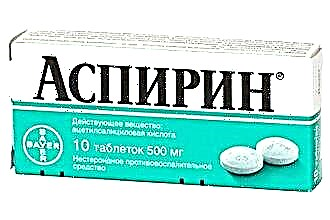Any illness during the period of bearing a baby is an extremely undesirable phenomenon. But life is so arranged that you cannot protect yourself from viruses and infections. In addition, there are also chronic diseases that tend to aggravate at the most inopportune moment. For example, if you can somehow protect yourself from the acute form of sore throat with the help of preventive measures, then chronic tonsillitis during pregnancy is always exacerbated. In this case, it is necessary to act correctly and necessarily under the supervision of a doctor who will tell you how to treat the disease so as not to harm the child.
Causes and symptoms
 There is only one reason for any form of tonsillitis - it is an infection that gets into the oral cavity and provokes an inflammatory process on the tonsils. Depending on how the inflammation proceeds, several types of angina are distinguished: catarrhal, lacunar, follicular, etc. But the essence of the process does not change - pathogenic microorganisms actively multiply, spreading in breadth and in depth, infect neighboring tissues and even penetrate into other organs and systems , provoking the development of severe complications.
There is only one reason for any form of tonsillitis - it is an infection that gets into the oral cavity and provokes an inflammatory process on the tonsils. Depending on how the inflammation proceeds, several types of angina are distinguished: catarrhal, lacunar, follicular, etc. But the essence of the process does not change - pathogenic microorganisms actively multiply, spreading in breadth and in depth, infect neighboring tissues and even penetrate into other organs and systems , provoking the development of severe complications.
The fact that a woman has chronic tonsillitis, she usually knows even before pregnancy. This disease does not appear suddenly - angina almost always begins with an acute form. But if the treatment was incorrect or not all of the infection is destroyed, then the remaining foci of inflammation provoke an exacerbation of the disease. As soon as immunity decreases, unfavorable external conditions affect the body or an additional load falls, as during pregnancy.
Therefore, it is especially important to recognize and completely cure acute tonsillitis in pregnant women, so as not to allow the disease to transform into a chronic one. Symptoms characteristic of angina will help to do this:
- a sudden significant increase in body temperature;
- severe redness and enlargement of the tonsils;
- sharp sore throat, worse when swallowing;
- complete lack of appetite;
- general weakness, joint pain, dizziness;
- enlargement and soreness of the cervical lymph nodes.
Moreover, all this is not accompanied by symptoms familiar to colds or SARS: cough, runny nose, swelling of the mucous membranes - and this is the main difference between tonsillitis and these diseases.
Literally on the second day, a characteristic white or yellowish coating appears on the tonsils, and a purulent odor from the mouth. In this case, it is necessary to act immediately, but since it is dangerous to treat tonsillitis during pregnancy on your own, you need to go to the hospital.
Risks for a pregnant woman
 Many pregnant women know that angina is an infectious disease that can be successfully treated only with antibiotics. But, having heard and read about the dangers of this group of the drug for the unborn child, women are simply afraid to consult a doctor or do not fulfill all of his prescriptions.
Many pregnant women know that angina is an infectious disease that can be successfully treated only with antibiotics. But, having heard and read about the dangers of this group of the drug for the unborn child, women are simply afraid to consult a doctor or do not fulfill all of his prescriptions.
They are trying to cure tonsillitis during pregnancy with only home treatments.
A more serious mistake is hard to imagine! Such a decision only exacerbates the situation - a woman loses precious time when the disease can be stopped at an early stage. Then you still have to go to the doctor and take antibiotics. But if earlier it was possible to get by with local drugs, now you have to take pills or injections, and the risk of drug exposure to the fetus only increases.
Tonsillitis is especially dangerous during pregnancy in the first trimester, when the baby is not yet reliably protected by amniotic fluid, and the formation of the placenta, which is a natural barrier that filters the blood that the baby receives, is not complete.
Toxins released by bacteria and drugs entering the bloodstream can affect the development of the fetus or lead to its death and / or spontaneous abortion.
The second trimester is considered the safest, since the main organs and systems of the unborn baby have already been formed, and most drugs that are prescribed for the treatment of acute tonsillitis do not penetrate the placental barrier. But in the third trimester, the risks increase again, since severe intoxication can provoke premature birth.
In chronic tonsillitis, there is another danger - if the manifestations of the disease are not contained, the toxins produced by streptococci (the main causative agents of tonsillitis) penetrate into the baby's blood and destroy vital organs.
There is a high risk of having a child with heart disease, arthritis, arthrosis, and kidney disease. This can only be prevented by well-planned preventive measures by a specialist.
How to treat
Treatment of tonsillitis during pregnancy, regardless of its form and characteristics of the course, should be carried out only under the supervision of a physician! This is due to the fact that many of the standard prescriptions: electrical procedures, antibiotics, etc. during pregnancy are contraindicated or involve risks that only a doctor can adequately assess. Folk remedies can only prevent the exacerbation of chronic tonsillitis, but even herbs for pregnant women are not allowed to be used all.
 What is left? Acute tonsillitis with purulent discharge and high fever will still have to be treated with antibiotics. They are selected by the doctor in the minimum acceptable doses, taking into account many factors: the duration of pregnancy, the condition of the fetus, the characteristics of the course of tonsillitis.
What is left? Acute tonsillitis with purulent discharge and high fever will still have to be treated with antibiotics. They are selected by the doctor in the minimum acceptable doses, taking into account many factors: the duration of pregnancy, the condition of the fetus, the characteristics of the course of tonsillitis.
At an early stage, it is often possible to get by with topical preparations. With severe inflammation, pills or injections are prescribed.
But alternative methods of treatment should not be neglected. They give excellent results as an adjunct to therapy, which should be comprehensive:
- Gargling. This is a basic element of treatment, which many neglect, considering it too simple a procedure. But it is with a thorough rinsing that purulent plaque is well washed off, which is a breeding ground for infection. Antiseptics are suitable for rinsing: solutions of furacillin, potassium permanganate, chrolophyllipt; sea salt solution; herbal decoctions: St. John's wort, elecampane, oak bark, calendula, cornflower.
- Inhalation. Steam inhalation heals well inflamed mucous membranes and relieves pain and irritation in the throat. They can be made with soda solution, decoctions of pine buds, eucalyptus, mint, thyme, chamomile. Ready-made solutions for inhalation can be purchased at the pharmacy. But be sure to ask if they contain antibiotics.
- Lozenges. They are very effective as they act directly on the site of inflammation. But it is advisable to use only natural-based lollipops during pregnancy: Lisobakt, Doctor IOM, Tantum Verde, Doctor Theiss, etc.
In case of severe angina, the doctor may prescribe Farinocept, Grammicidin, Septolette and other antibiotic pills. In this case, you must strictly follow the instructions for use.
- Throat sprays. They are also effective topical preparations. They quickly relieve inflammation, create an unfavorable environment for the reproduction of pathogenic microflora. Good antiseptics are Ingalipt, Kameton, Lugol's solution. "Bioparox" gives quick results, but it is an antibiotic and can only be prescribed by a doctor.
 Warming up. The throat with angina should always be warm: a draft or the slightest hypothermia activates the disease.But it is not recommended to use a blue and infrared lamp, mustard plasters, vodka compresses in early pregnancy, so as not to provoke increased blood circulation and increased uterine tone. You can simply wrap a warm scarf around your throat. At night, you can apply a warming balm with eucalyptus, camphor and menthol oil to your neck.
Warming up. The throat with angina should always be warm: a draft or the slightest hypothermia activates the disease.But it is not recommended to use a blue and infrared lamp, mustard plasters, vodka compresses in early pregnancy, so as not to provoke increased blood circulation and increased uterine tone. You can simply wrap a warm scarf around your throat. At night, you can apply a warming balm with eucalyptus, camphor and menthol oil to your neck.
Chronic tonsillitis, if you know about it, is best treated 2-3 months before the planned pregnancy. If he has not responded to treatment for a long time, you should think about the surgical removal of the tonsils.
Still, aggravated tonsillitis and pregnancy are not the best combination. Moreover, the operation is simple and completely harmless, and the tonsils lose their importance with age.
Prevention of tonsillitis
Angina is an extremely contagious disease. Therefore, the first rule that a pregnant woman must follow is no contact with sick people. This will help avoid infection not only with angina, but also with other respiratory infections. If one of the family members is sick, it is advisable to isolate him and put on a gauze bandage.
Other preventive measures are no less important:
 Cleanliness, moderate temperature and humidity in the premises, absence of allergens and external irritants: household chemicals, tobacco, perfumes.
Cleanliness, moderate temperature and humidity in the premises, absence of allergens and external irritants: household chemicals, tobacco, perfumes.- Regular walks in the fresh air, and if this is not possible due to bad weather conditions, ventilate the room several times a day.
- Moderate physical activity. Pregnancy is not a disease, but movement activates the work of the whole organism, including the immune system.
- Adequate nutrition, rich in vitamins, minerals and trace elements, of which much more is needed during pregnancy.
- A positive attitude, confidence that the pregnancy will go well and the baby will be born healthy.
- Normal Sleep - Not getting enough sleep greatly weakens your immune system, so if you don't sleep well, ask your doctor to prescribe mild sedatives.
- Lack of stress - during stress, the hormonal background changes dramatically, which is already unstable in a pregnant woman.
But the main thing is a timely response to the manifestations of any disease and no self-medication. It is better to play it safe and mistake a cold for tonsillitis than to start a disease, for the treatment of which you will then need a course of potent drugs.

 Warming up. The throat with angina should always be warm: a draft or the slightest hypothermia activates the disease.But it is not recommended to use a blue and infrared lamp, mustard plasters, vodka compresses in early pregnancy, so as not to provoke increased blood circulation and increased uterine tone. You can simply wrap a warm scarf around your throat. At night, you can apply a warming balm with eucalyptus, camphor and menthol oil to your neck.
Warming up. The throat with angina should always be warm: a draft or the slightest hypothermia activates the disease.But it is not recommended to use a blue and infrared lamp, mustard plasters, vodka compresses in early pregnancy, so as not to provoke increased blood circulation and increased uterine tone. You can simply wrap a warm scarf around your throat. At night, you can apply a warming balm with eucalyptus, camphor and menthol oil to your neck. Cleanliness, moderate temperature and humidity in the premises, absence of allergens and external irritants: household chemicals, tobacco, perfumes.
Cleanliness, moderate temperature and humidity in the premises, absence of allergens and external irritants: household chemicals, tobacco, perfumes.

